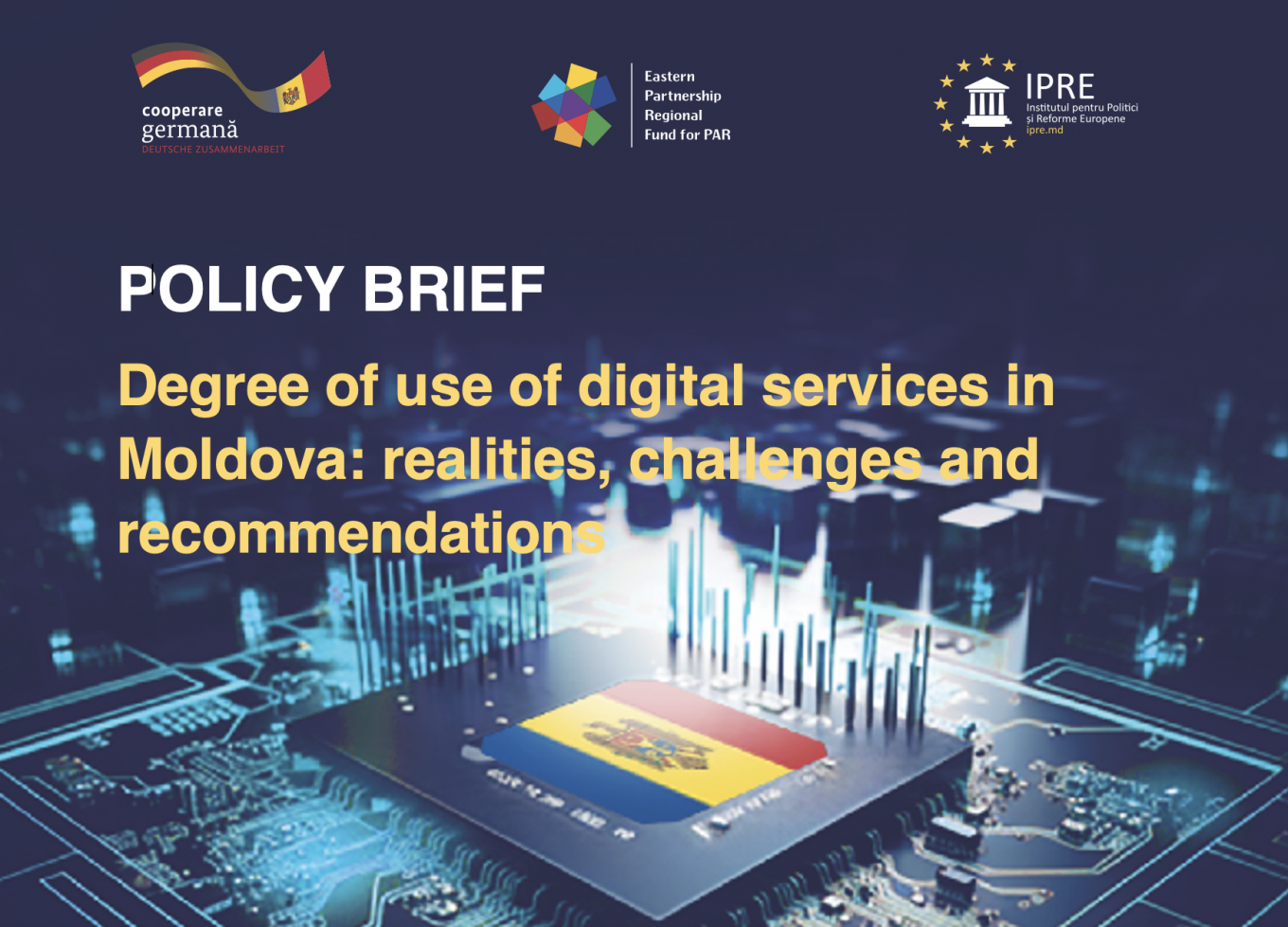Policy Brief: How to increase the degree of use of digital services in Moldova?

According to the available data on the government portal of public services, in Moldova there are 714 public services, of which 283 services, or nearly 40%, are digital services. Out of these 283 e-Services, 126 are related to the issuance of permits, and 157 are services for citizens and businesses.
A distinct category among these services is represented by digital solutions for entrepreneurs, reported to the Ministry of Economic Development and Digitalization (MDED) as being developed and functional, but not used by any beneficiary (zero users) during the reporting period (2022). The total number of such services is 128, which accounts for 56.63% of the reported 226 digital services.
These are some of the findings of an analytical note drafted by Victor Guzun, Digital Policy Expert at IPRE, which analyzes the degree of use of digital services in Moldova and provides a series of recommendations to increase the usage of digital services by the whole population.
According to the author, the low-scale use of digital services is influenced by several factors related to the digital transformation process and how society perceives digital innovations. Among the identified factors are:
- The low number of users of qualified advanced electronic signatures, which represent the fundamental interface for accessing digital services.
- Insufficient information provided to users and beneficiaries about the existence of developed digital solutions, their functionalities, advantages, and benefits. Many functional digital services are not well-known to end-users and there are no clear and accessible communication channels through which users can obtain additional information about their use or technical assistance if needed.
- The complexity, lack of clarity and non-intuitive interface of digital solutions. In cases where an electronic application or service is characterized by a complex or confusing user interface, public service beneficiaries may encounter difficulties in navigating the process and completing the necessary steps to access and benefit from the respective services.
“Digital solutions do not work efficiently if they are too complex, hard to understand and have an unclear or ambiguous design. Ultimately, developers of digital solutions need to understand that digital solutions are not just intended for specialized professionals. They are meant for all users and, to the best of their ability, should be developed in a simple and intuitive manner. It is essential for public service providers to be responsive to the suggestions of public service beneficiaries and continuously improve their electronic public services to meet the needs and expectations of citizens and the business environment”, says Victor Guzun.
In this context, IPRE proposes a series of recommendations for decision-makers:
- Increase the number of users of digital signature certificates available in the Republic of Moldova, including through informational campaigns about the functionality of digital signatures and the advantages they offer as access keys for all existing and prospective digital services.
- Identify opportunities to minimize the costs of obtaining and renewing digital signature certificates and their use, including the removal of limitations on the number of digital signatures a citizen can apply.
- Develop digital signature certificates based on the smartphone application MobiSign, which is in the process of implementation and launch. This application could serve as a major catalyst for the widespread use of digital services.
- Increase the number of digital ambassadors who provide relevant information to any citizen about available digital services.
- Inform citizens about the security of their personal data used in the context of digital solutions, who accesses their data and for what purposes, and what limitations exist.
- Develop digital education programs for all levels of education, tailored to the age-specific needs and current trends.
- Expand national internet coverage.
For more details, please see the policy brief here.
This policy brief is developed by IPRE, with the support of the projects ”Policy Advisory Fund” and ”E-governance and digitalization in the Eastern Partnership countries”, financed by the Federal Ministry of Economic Cooperation and Development of Germany (BMZ) and implemented by GIZ Moldova.

